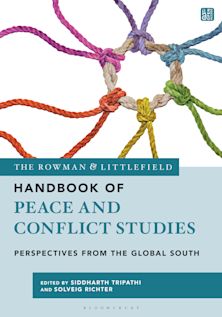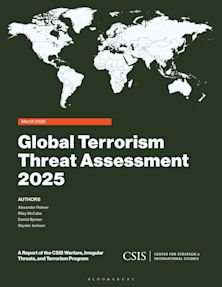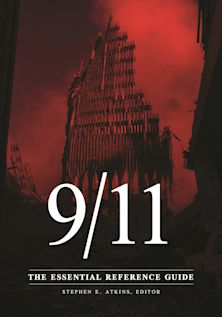- Home
- ACADEMIC
- Politics & International Relations
- Security and Strategic Studies
- Drawing a Line in the Sea
Drawing a Line in the Sea
The Gaza Flotilla Incident and the Israeli-Palestinian Conflict
Thomas E. Copeland (Anthology Editor) , Deane-Peter Baker (Contributor) , Thomas E. Copeland (Contributor) , Jeanette Fregulia (Contributor) , Christos Frentzos (Contributor) , Susan Jellissen (Contributor) , Lisa M. McCartan (Contributor) , Spencer Meredith (Contributor) , Eric Metchik (Contributor) , Carmine Scavo (Contributor) , Richard Spence (Contributor) , Joseph Spoerl (Contributor) , Samuel Stanton (Contributor) , David Walker (Contributor) , Alethia H. Cook (With) , Lisa M. McCartan (With)
Drawing a Line in the Sea
The Gaza Flotilla Incident and the Israeli-Palestinian Conflict
Thomas E. Copeland (Anthology Editor) , Deane-Peter Baker (Contributor) , Thomas E. Copeland (Contributor) , Jeanette Fregulia (Contributor) , Christos Frentzos (Contributor) , Susan Jellissen (Contributor) , Lisa M. McCartan (Contributor) , Spencer Meredith (Contributor) , Eric Metchik (Contributor) , Carmine Scavo (Contributor) , Richard Spence (Contributor) , Joseph Spoerl (Contributor) , Samuel Stanton (Contributor) , David Walker (Contributor) , Alethia H. Cook (With) , Lisa M. McCartan (With)
You must sign in to add this item to your wishlist. Please sign in or create an account
Description
The deadly May 31, 2010 Gaza flotilla incident has been misunderstood. This book explores the incident in more detail than mainstream media coverage has allowed-explaining the background, key players, and the incident itself-enriched by the authors having had unique access to senior Israeli officials in the immediate aftermath of the event. The incident is a microcosm of the struggle between terrorism and democratic societies, and raises a number of legal, ethical, and strategic political issues in the contemporary Middle East. Chapters address the political and military scenario preceding the incident, key state and non-state actors involved, military and ethical dimensions of the operation, and the aftermath in the media and politics. The book provides thoughtful and readable analysis that is useful to policy makers and to the general public, and draws some important conclusions for the continuing conflict between democratic states and terrorists and their sponsors.
Table of Contents
Part 2 Part 1: The Scenario
Chapter 3 Chapter 2. Ethnic and Religious Dimensions of the Israeli-Palestinian Struggle
Chapter 4 Chapter 3. Why There? The Origin, Evolution, and Historical Significanceof the Gaza Strip
Chapter 5 Chapter 4. Iran and Weapons Proliferation in Lebanon and Gaza
Chapter 6 Chapter 5. Ethical Considerations and Israeli Policy towards the Palestinians
Part 7 Part 2: The Players
Chapter 8 Chapter 6. Islamic Resurgence in Turkey: The Mavi Marmara Incident as its Statement
Chapter 9 Chapter 7. Hamas - Ideology, Elections, and Governance in Gaza
Chapter 10 Chapter 8. Charity Begins (and Ends?) at Home: The Nexus between Islamic Social Welfare and the Funding of Terrorism
Chapter 11 Chapter 9. RMA's, Hybrid Wars, and the Gaza Flotilla Incident
Part 12 Part 3: The Incident and Its Aftermath
Chapter 13 Chapter 10. Tactical Ethics: An Evaluation of the Israeli Naval Commando Assault on the MV Mavi Marmara
Chapter 14 Chapter 11. Playing Offense and Defense: Examining the Effectiveness of Israel's Counterterrorism Strategies
Chapter 15 Chapter 12. Understanding American Media Reaction to the Gaza Flotilla Incident
Chapter 16 Chapter 13. US-Israeli Relations in the Wake of the Flotilla Incident
Chapter 17 Chapter 14. Drawing a Line in the Sea: What the Gaza Flotilla Incident Means
Product details
| Published | 16 Sep 2011 |
|---|---|
| Format | Ebook (PDF) |
| Edition | 1st |
| Extent | 200 |
| ISBN | 9798216281689 |
| Imprint | Lexington Books |
| Publisher | Bloomsbury Publishing |
About the contributors
Reviews
-
The Gaza Flotilla Incident of 2010 marked a dramatic shift in Turkey's relations with Israel and with the Middle East region in general. Drawing a Line in the Sea, an excellent collection of 14 essays by academics familiar with the region, goes a long way toward helping readers understand what led up to the Gaza Flotilla Incident and its significance to the Middle East and beyond. Drawing a Line is effectively organized in three parts: The Scenario, The Players, and The Incident and its Aftermath. Each has its own story to tell and each essay is well worth the read.
Fred M. Gottheil, University of Illinois at Urbana-Champaign



































